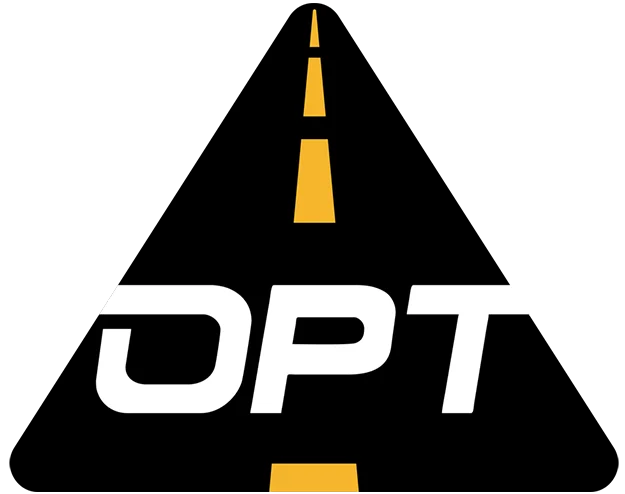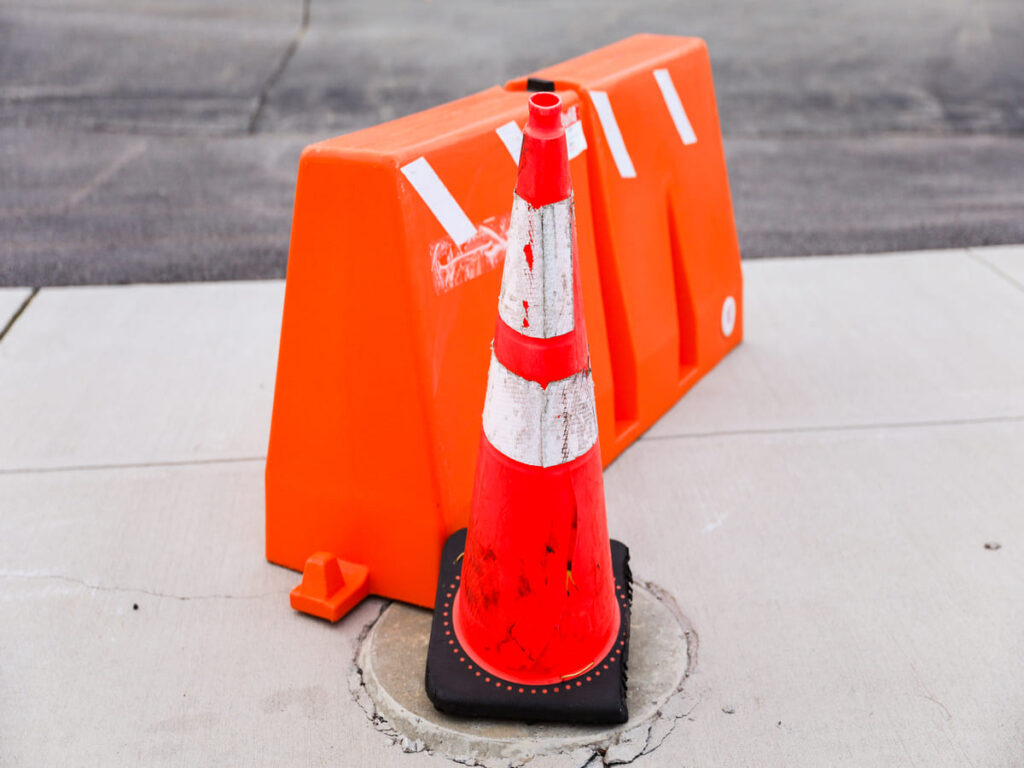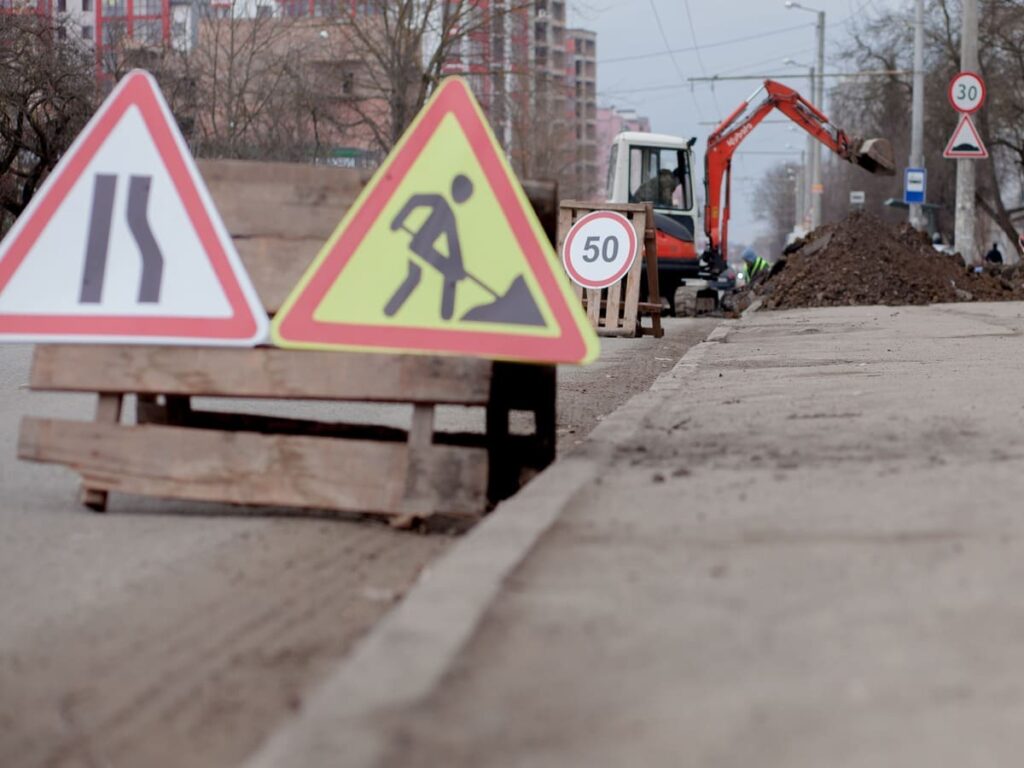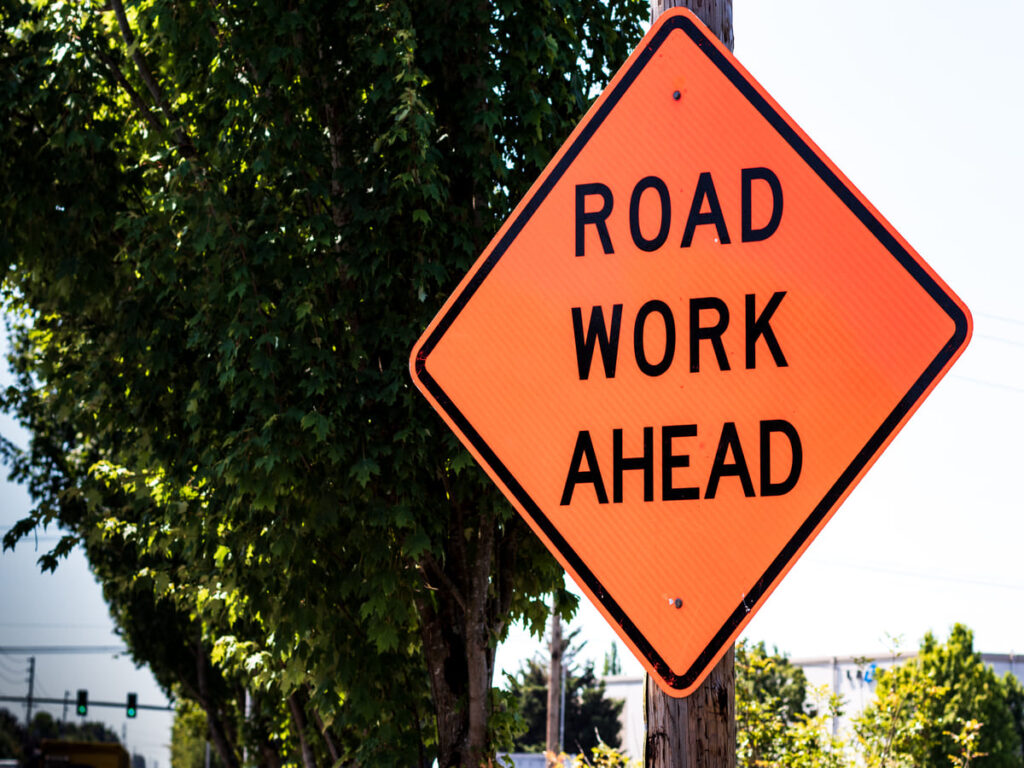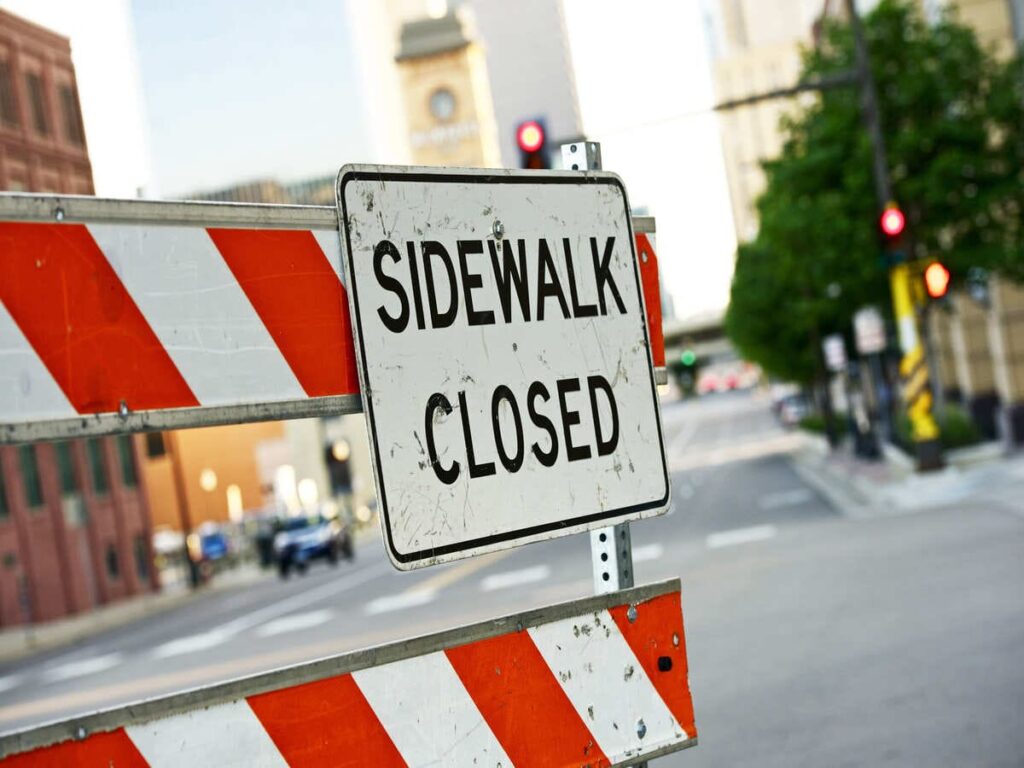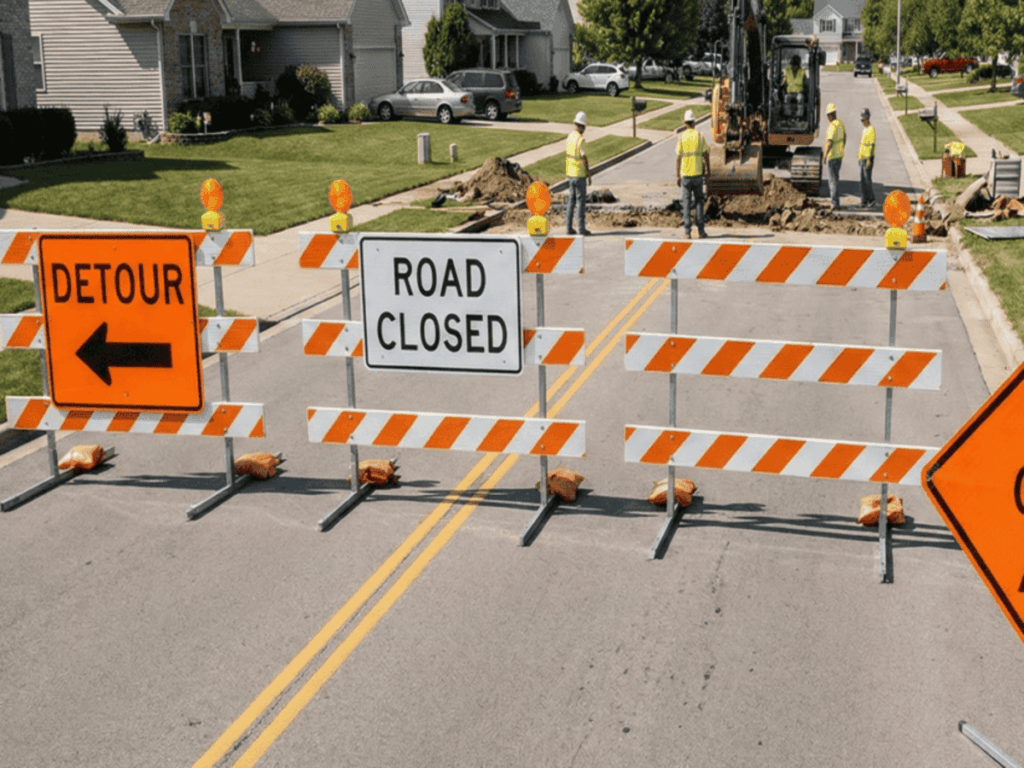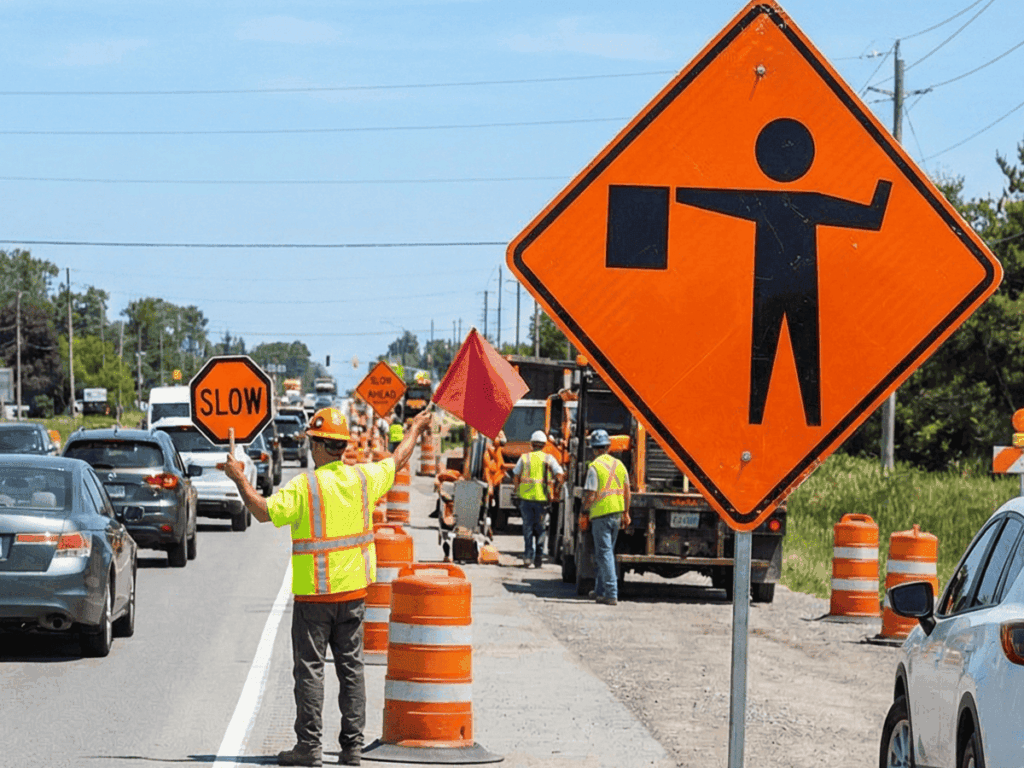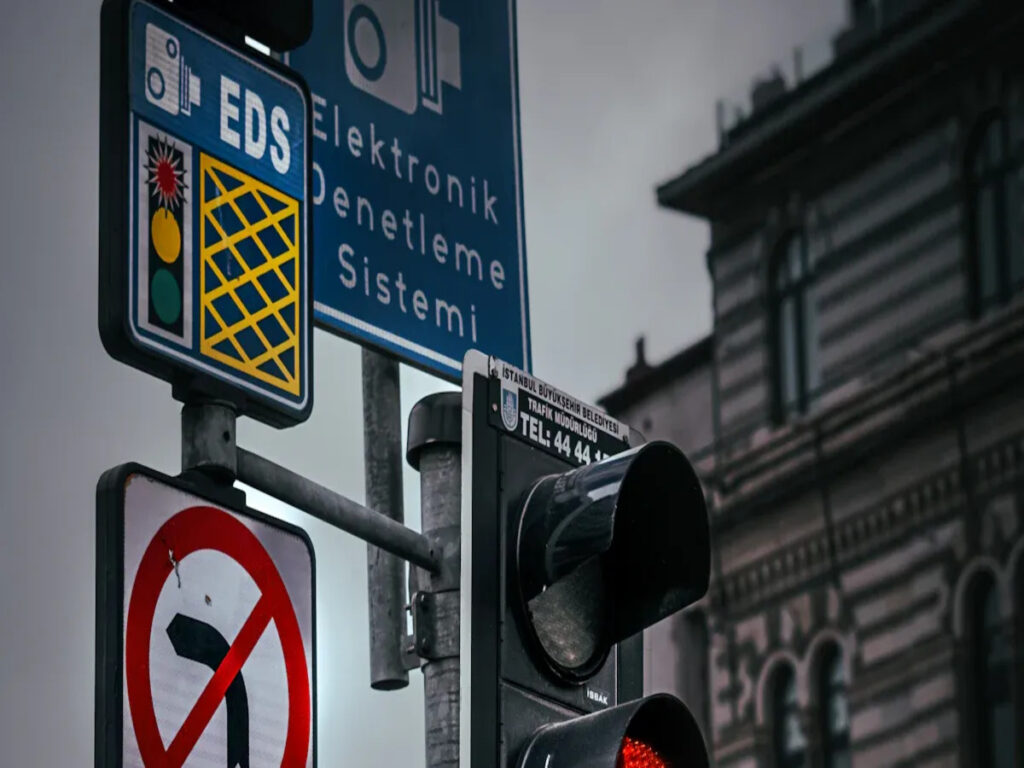
Die Verkehrskontrolle ändert sich, und Multi-Message-Frames führen den Weg. Diese Zeichenrahmen helfen den Fahrern, wichtige Straßeninformationen problemlos zu erhalten. Dies macht das Fahren sicherer und der Verkehrsfluss besser. Neue Tools wie KI verbessern diese Systeme. KI verwendet Daten, um Gefahren an Kreuzungen vorherzusagen. Es ändert auch Verkehrszeichen, um Probleme zu verhindern, bevor sie auftreten. Diese intelligente Methode hält Straßen sicher und Schilder für neue Situationen aktualisiert. Durch Anschauen und Verwenden von Daten ständig, Diese Systeme machen den Verkehr fairer und intelligenter. In Zukunft, Schilder ändern sich, um den Fahrern richtig zu helfen, wenn sie es brauchen.
OPTRAFFIC Bietet hochwertige Multi-Message-Rahmen aus schwarz pulverbeschichtetem Stahl gefertigt, Bereitstellung einer robusten und stabilen Struktur für temporäre Sicherheitszeichen. Diese Zeichenrahmen spielen eine entscheidende Rolle im Verkehrsmanagement, Warnungsauto -Autofahrer auf wichtige Straßenaktualisierungen wie Roadworks alarmieren, Schließungen, Geschwindigkeitsreduzierungen, und andere gefährliche Bedingungen. Für die Haltbarkeit entwickelt, Sie sind ein zuverlässiger Instrument für eine effektive Kommunikation in verschiedenen Situationen, Sicherstellen, dass die Fahrer immer informiert werden und die Straßen sicher bleiben.
Mit einfacher Installation und lang anhaltender Leistung, Optraffics Verkehrszeichenrahmen Bieten Sie eine kostengünstige und vielseitige Lösung für die Verwaltung des Verkehrs und die Verbesserung der Verkehrssicherheit an. Ideal für Auftragnehmer, Gemeinden, und Fachleute für Straßensicherheit, Diese Frames sind ein wesentliches Instrument für jeden Verkehrsmanagementplan.
Key Takeaways
- Multi -Nachrichten -Rahmen machen Straßen sicherer, indem sie den Fahrern schnelle Updates geben. Diese Updates helfen ihnen, den Verkehr zu vermeiden und sicher zu bleiben.
- Mit modularen Designs können Arbeitnehmer die Verkehrszeichen leicht ändern. Dies spart Zeit und reduziert Abfall während der Einrichtung und Reparaturen.
- Stärkere Materialien lassen Verkehrszeichen länger dauern. Sie kosten weniger, um bei jedem Wetter klar zu werden und klar zu bleiben.
- Umweltfreundliche Materialien in Schildern helfen der Umwelt. Sie reduzieren den Schaden und unterstützen den Reiniger, grünere Städte.
Fortschritte in Multi–Nachrichtenrahmen
Modulares und flexibles Design
Verkehrszeichen sehen an verschiedenen Stellen anders aus. Autobahnen brauchen große Zeichen, während Nachbarschaften kleinere benutzen. Modulare Designs tragen dazu bei, die Rahmen für diese Anforderungen anzupassen. Verkehrsteams können Frames wechseln, ohne alles zu ersetzen. Sie können Teile hinzufügen oder entfernen, um neue Zeichen anzupassen. Dies spart Zeit und reduziert den Abfall während des Einrichtens.
So wie Staaten in den USA. Verwenden Sie modulare Designs:
| Beispiel | Beschreibung |
|---|---|
| Kalifornien | Verwendet hochwertige Materialien, um strenge Regeln zu erfüllen, zeigen, wie modulare Designs für schwierige Standards funktionieren. |
| Texas | Spart Geld mit einfachen Setups, Flexibilität für unterschiedliche Bedürfnisse beweisen. |
| Allgemeine Vorteile | Verringerung der Abfall- und Arbeitskosten senken, Verkehrszeichen billiger und schneller zu produzieren machen. |
Diese Beispiele zeigen, dass modulare Designs flexibel sind und Geld sparen. Diese Methode hält Multi -Nachrichten -Frames für lange Zeit nützlich und effizient.
Verbesserte Haltbarkeit mit fortschrittlichen Materialien
Verkehrszeichen müssen durch hartes Wetter dauern. Multi-Message-Rahmen Gesichtswärme, kalt, Regen, und Luftfeuchtigkeit. Neue Materialien machen diese Rahmen jetzt stärker. Rostbesichtige Metalle und wettersichere Beschichtungen halten sie in gutem Zustand.
Denken Sie an einen Rahmen, der bei starkem Regen nicht rostet. Dies ist mit besseren Materialien möglich. Diese Materialien senken auch die Reparatur- und Ersatzkosten. Frames dauern länger, Zeit und Geld sparen.
Bessere Materialien machen auch Schilder klarer zum Lesen. Fahrer erhalten schnell und einfach die richtigen Informationen. Starke und klare Frames sind der Schlüssel für die heutigen Verkehrssysteme.
Nachhaltigkeit bei Verkehrsbeschilderung
Umweltfreundliche Materialien und Fertigung
Verkehrszeichen können dazu beitragen, die Umwelt zu schützen. Zukunft Multi-Message-Rahmen Verwendet recyceltes Aluminium und biologisch abbaubare Kunststoffe. Diese Materialien senken Abfall und unterstützen die Nachhaltigkeitsziele der Stadt. Die Verwendung von ihnen senkt den durch Produktion verursachten Schaden.
Denken Sie an einen Rahmen aus recycelten Metallen. Es spart Ressourcen und nutzt weniger Energie, um sie zu machen. Dies hilft, die Umweltverschmutzung zu verringern und die Luft sauberer zu halten. Viele Unternehmen verwenden jetzt solarbetriebene Werkzeuge und verschwenden weniger Wasser in Fabriken. Diese Aktionen helfen, umweltfreundlichere Städte aufzubauen.
Tipp: Wenn Sie das nächste Mal ein Verkehrszeichen sehen, Überlegen Sie, wie recycelte Materialien dem Planeten helfen könnten!
Langfristige Haltbarkeit und geringe Wartung
Starke Rahmen dauern länger und müssen nicht oft ersetzt werden. Dies spart Geld und reduziert Abfall. Rostbesichtige Beschichtungen und harte Materialien halten Rahmen vor schlechtem Wetter schützt. Regen oder Hitze wird sie nicht leicht beschädigen.
Rahmen, die Rost widerstehen, benötigen weniger Reparaturen. Dies bedeutet weniger Arbeit und weniger Materialien im Laufe der Zeit. Langlebige Rahmen bleiben auch jahrelang klar und leicht zu lesen. Dies hält die Straßen für Fahrer sicherer.
Langlebige Designs sind intelligente Investitionen. Sie sparen Geld und helfen der Umwelt. Bessere Verkehrszeichen machen das Leben für alle einfacher.
Integration mit Smart City Infrastruktur
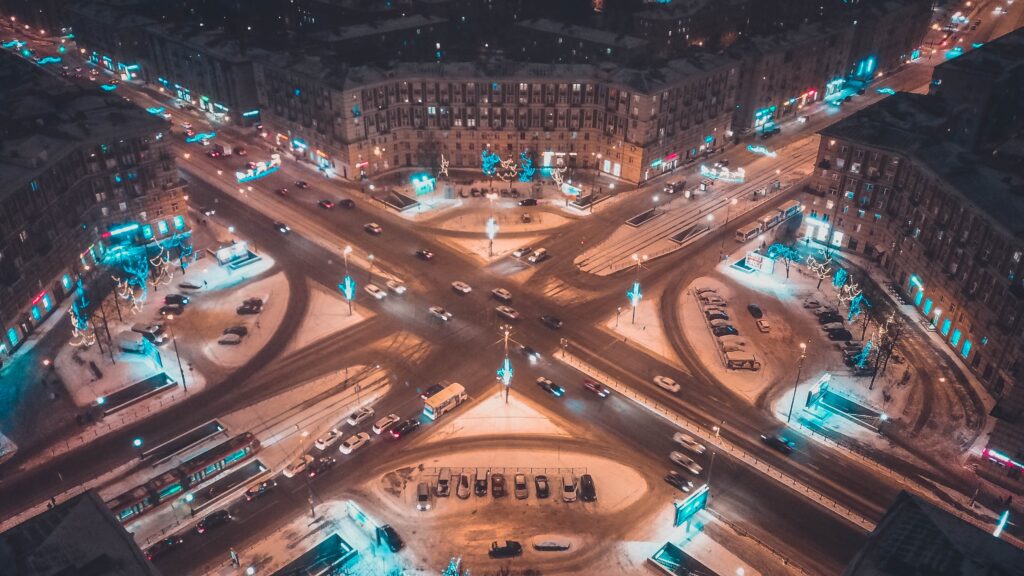
KI-betrieben intelligente Verkehrssysteme
KI verändert die Art und Weise, wie Städte mit dem Verkehr umgehen. Diese Systeme machen Straßen sicherer und klüger. Sie untersuchen vergangene und aktuelle Verkehrsdaten, um Probleme vorherzusagen und den Fluss zu verbessern. Zum Beispiel:
- AI untersucht Verkehrsmuster, um schneller vorzuschlagen, Bessere Routen.
- Ampeln ändern das Timing basierend auf der Art und Weise, wie besetzt die Straßen sind.
- KI -Spotsunfälle oder -blockaden und hilft dem schneller Wiedergutmachungsverkehr.
Diese Werkzeuge erleichtern das Fahren einfacher und weniger stressig. Stellen Sie sich Ampeln vor, die sich an die Anzahl der Autos auf der Straße anpassen. Dies spart Zeit und hält alle sicherer.
KI erleichtert auch das Ersetzen von Schildern für Multi-Message-Zeichenbilder für Echtzeit-Updates. Diese Halterungen ermöglichen schnelle Änderungen, um wichtige Nachrichten anzuzeigen, wie Wetterwarnungen oder Unfallalarme. Mit klaren Grafiken, Die Nachrichten sind leicht zu lesen, sogar aus der Ferne.
Echtzeit-Anpassungsfähigkeit mit IoT-Integration
IoT macht Verkehrssysteme noch schlauer. Sensoren, Kameras, Und Multi-Message-Rahmen Arbeiten Sie zusammen, um schnell auf Veränderungen zu reagieren. Dies hilft, Staus zu reduzieren und die Straßen sicher zu halten.
So verbessert IoT Verkehrssysteme:
| Leistungsmetrik | Beschreibung |
|---|---|
| Minderung der Verkehrsstaus | KI in der Cloud passt die Signale an, um den Verkehr zu reduzieren. |
| Transit -Effizienz | Apps teilen sich Echtzeit-Verkehrsinformationen und die besten Routen. |
| Reduzierung der Umweltauswirkungen | Weniger Verkehr bedeutet sauberere Luft und weniger Umweltverschmutzung. |
| Dynamisches Verkehrsmanagement | Smart Systems ändern Signale basierend auf Live -Daten. |
IoT gibt den Fahrern auch aktuelle Informationen. Zum Beispiel, Multi-Message-Rahmen Kann Umwege zeigen oder vor eisigen Straßen warnen. Dies hilft den Fahrern, auf Reisen bessere Entscheidungen zu treffen.
Wenn IoT und KI integriert sind, Verkehrssysteme werden fortgeschrittener, mit schnelleren Reaktionszeiten. Die schnellen Datenaktualisierungen erleichtern es den Personen, Zeichen für Multi-Message-Zeichenrahmen zu ersetzen, Ermöglichen Sie schnelle Änderungen, um wichtige Aktualisierungen zu kommunizieren. Dies verbessert die Kommunikation zwischen Verkehrsmanagementsystemen und Treibern und verbessert gleichzeitig die allgemeine Verkehrssicherheit.
Notiz: IoT und KI sind nicht nur coole Technologie - sie machen Städte sicherer und schlauer für alle.
Die Rolle von Multi–Nachrichtenrahmen in autonomen Fahrzeugökosystemen
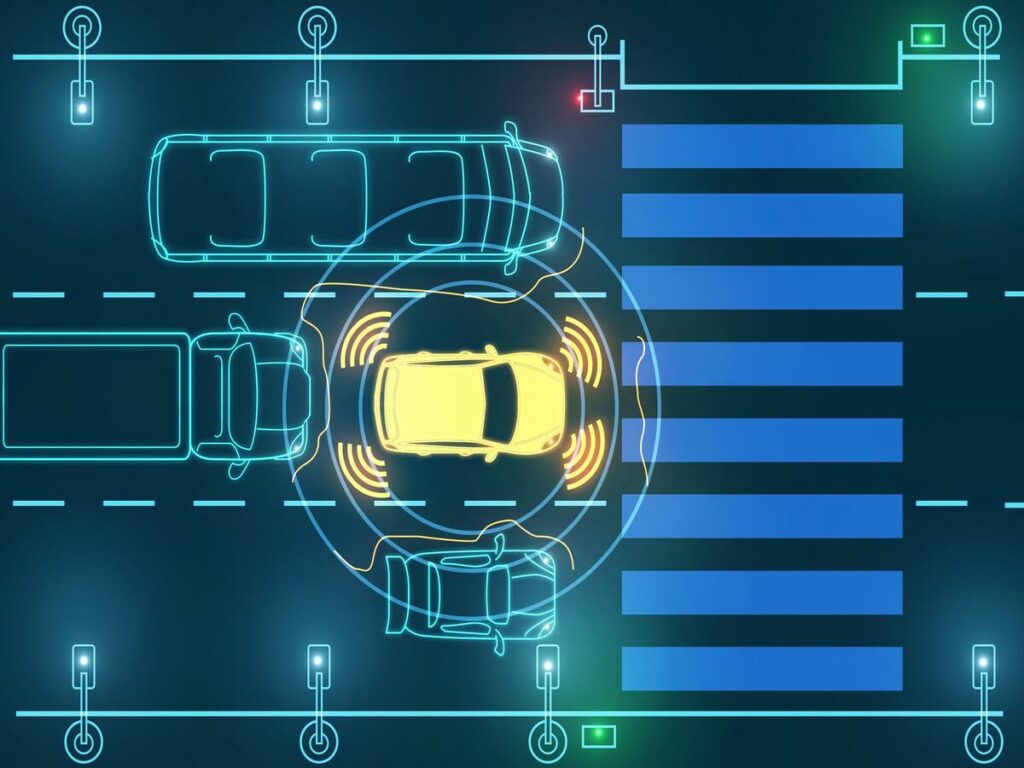
Standardisierte Informationen zur nahtlosen Navigation
Selbstfahrende Autos Benötigen Sie überall die gleichen Zeichen, um Fehler zu vermeiden. Multi-Message-Rahmen stellen sicher, dass die Verkehrsinformationen an allen Stellen gleich aussehen. Dies hilft Autos, Anzeichen wie Geschwindigkeitsgrenzen oder Umwege schnell zu verstehen.
Klare Zeichen helfen auch menschlichen Fahrern. Wenn Autos und Menschen die Straße teilen, Einfache Zeichen verhindern Verwirrung. Multi-Message-Rahmen verwenden einfach zu lesende Designs, damit jeder sie versteht.
Durch die Verwendung von intelligenten Tools und klaren Zeichen, Multi-Nachrichten-Rahmen verbinden Menschen und selbstfahrende Autos. Sie machen Straßen sicherer und fahren für alle leichter.
Herausforderungen und Chancen in der Innovation
Kosten- und Integrationsbarrieren überwinden
Die Verbesserung der Verkehrszeichen kann teuer und schwer zu errichten sein.. Sie könnten fragen, wie Städte für diese Systeme bezahlen. Die Lösung sind intelligente Ausgaben und Teamarbeit. Zum Beispiel, Clark County benutzte intelligente Planung, um die Verkehrssignale billig zu verbessern. Maricopa County rettete $1.4 Millionen durch Einsatz besserer Verkehrsstrategien. Diese Beispiele zeigen, dass eine gute Planung Upgrades erschwinglich macht.
| Fallstudie | Wichtige Erkenntnisse | Lektionen gelernt |
|---|---|---|
| Clark County | Gebrauchte intelligente Investitionen, um Verkehrsanbietungen billiger zu machen. | Konzentrieren Sie sich auf Schlüsselbereiche, um Geld zu sparen. |
| Maricopa County | Gerettet $1,483,784 mit fortschrittlichen Verkehrsstrategien. | Partnerschaften helfen bei der Verbesserung der Systemintegration. |
| LCDOT | Schulungskosten für Betreiber waren nur $6,300. | Informelles Training spart Geld und stärkt das Lernen. |
Alte Systeme können das Hinzufügen neuer Tech schwierig machen. Aber Teamwork und Training können helfen. LCDOT fand heraus. Durch Zusammenarbeit und Lehrpersonal, Städte können diese Herausforderungen besser bewältigen.
Globale Standards und Vorschriften festlegen
Klare Regeln sind wichtig, um Verkehrszeichen zu verbessern. Ohne sie, Die Fahrer werden möglicherweise durch verschiedene Zeichen an verschiedenen Orten verwirrt. Der Handbuch zu einheitlichen Verkehrskontrollgeräten (MUTCD) hilft, dies zu beheben. Es gibt klare Regeln für Verkehrszeichen in den USA. Dies macht Straßen sicherer und einfacher zu bedienen.
| Dokumenttitel | Beschreibung |
|---|---|
| Handbuch zu einheitlichen Verkehrskontrollgeräten | Legt klare Regeln für Verkehrszeichen im ganzen Land fest. |
Globale Regeln helfen auch selbstfahrende Autos. Diese Autos brauchen überall die gleichen Schilder, um sicher zu fahren. Wenn Städte die gleichen Regeln befolgen, Diese Autos funktionieren besser. Standardregeln machen Straßen sicherer und helfen intelligente Städte zu wachsen. Indem Sie diese Regeln befolgen, Wir schaffen eine Zukunft, in der Technik und Straßen gut zusammenarbeiten.
Tipp: Klare Zeichen helfen sowohl Fahrern als auch selbstfahrende Autos, die Straßen für alle sicherer machen.
Die Zukunft von Multi-Message-Frames sieht hell aus. Neue Ideen wie modulare Designs, umweltfreundliche Materialien. Diese Updates erleichtern die Anpassung von Schildern, stärker, und besser für den Planeten. KI und fortgeschrittene Frames helfen Straßen, sicher und klug zu bleiben. Sie lassen Verkehrssysteme schnell auf Echtzeitveränderungen reagieren.
Die Zukunft ist aufregend. Multi-Message-Frames verändern die Funktionsweise von Städten. Sie werden Städte sicherer machen, Reiniger, und besser für alle.
FAQ
Wofür werden Multi-Message-Rahmen verwendet??
Multi-Message-Rahmen halten mehrere Verkehrszeichen an einem Ort. Sie zeigen Straßenregeln, Geschwindigkeitsbegrenzungen, und Umwege deutlich. Diese Rahmen machen das Fahren sicherer und reduzieren den Verkehr, indem sie den Fahrern klare Informationen geben.
Sind Multi-Message-Frames umweltfreundlich?
Ja, Viele Verkehrszeichenrahmen verwenden jetzt recycelte Metalle und biologisch abbaubare Kunststoffe. Diese Materialien schneiden Abfall und sparen während der Produktion Energie. Sie helfen Städten, grün zu bleiben und die Umwelt zu schützen.
Wie unterstützen Multi-Message-Rahmen autonome Fahrzeuge?
Sie geben klar, Echtzeitinformationen, die selbstfahrende Autos leicht lesen können. Dies hilft Autos, den Verkehrsaktualisierungen zu folgen und auf der Straße sicher zu bleiben. Es macht auch das Fahren für alle reibungsloser.
Was modulare Entwürfe für die Verkehrsbeschilderung wichtig machen?
Mit modularen Designs können Sie die Frames für verschiedene Anforderungen ändern. Sie können Teile hinzufügen oder entfernen, ohne den gesamten Rahmen zu ersetzen. Dies spart Zeit, verringert Verschwendung, und lässt Verkehrssysteme besser funktionieren.
Tipp: Schauen Sie sich modulare Rahmen in Ihrer Nähe an - sie sind klug und flexibel!
